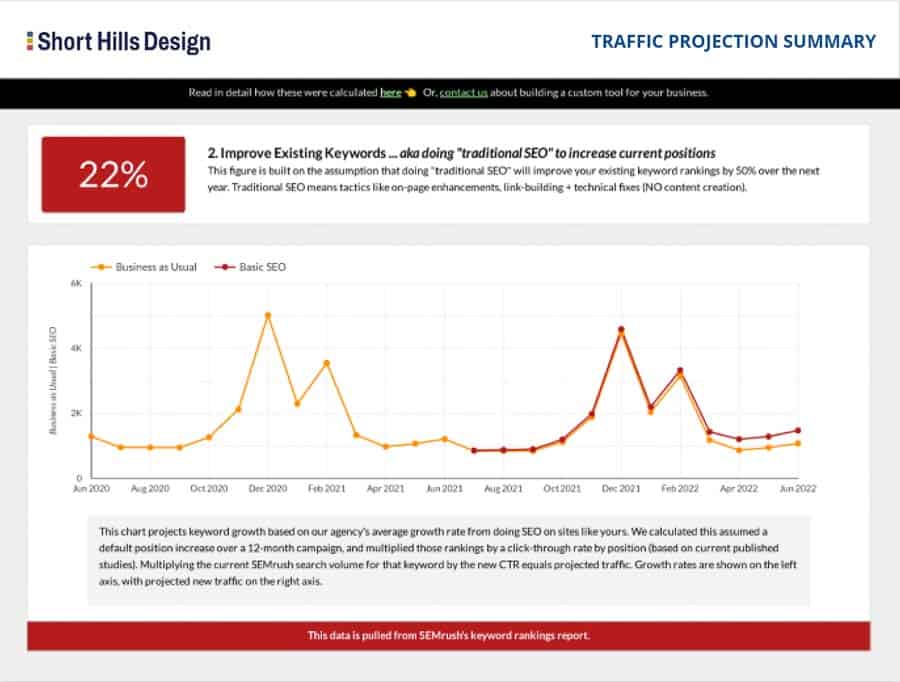Search has changed. Anyone who uses Google as a search engine will notice that when Google returns search results for a particular query, you no longer see a simple list of websites that “match” your search terms - you now also see a collection of additional, relevant information. As David Amerland adeptly characterizes this shift in his book (details below), the traditional search engine is now becoming “an answer engine, a recommendation engine, even a prediction engine…giving me answers like my best friend would”)
In the traditional search engine model, business owners and web developers place specific keywords (or search terms) on a web page. Their hope is that when someone does a Google search that contains these same keywords, the page in question will rank highly on the list of web pages that is returned to the user.
In this traditional (and still viable, yet changing model), links became the currency of authority and trust. When Google had to choose among a collection of pages that all wanted to rank for the same keyword, one of the biggest factors in determining “who would rank first” became the number and quality of links going TO that web page. The idea is simple – if you have a web page about “veneers”, and other websites feel that your page is so good that they decide to link to it – to share it – then this “recognition” builds your reputation. So in the traditional sense, all other things being equal (on-page SEO*), Google would use links TO your page to determine your webpage’s level of “popularity” (which is known as PageRank or PR for short), and therefore your page’s ranking position for a particular search.
*For this discussion I am assuming that the competing web pages all follow the Google’s Webmaster Guidelines. It’s the same thing as assuming that when we talk about taking an impression, we are taking it for granted that you already have exquisite moisture control).
Two of the biggest problems with this traditional approach to search results are that (1) people try to game the system with linking schemes and (2) the results provided aren’t necessarily “intelligent”.
The idea behind semantic search is that instead of using keywords and links to determine “which page is the best page to help answer the user’s query”, Google will use an aggregation of a tremendous amount of data to help make the selection. The advantages of this “semantic search” are that (1) the system cannot easily be gamed and (2) the search results that people receive are more and more helpful to the user.
So basically with semantic search, when a query is asked, Google is going to look at you or your business’ “trustworthiness” to help determine web page ranking. **
**The above is a gross oversimplification of the highest order, and if you’d like to really understand the in-and-outs of semantic search, be sure to read David A’s book. +Chip bought me a copy and it’s a great (non-technical) read.
Though David A maybe you can write a version that does the math – I’d love to see it!
Yes and no. I agree that having a search system that (a) is hard to game and (b) provides better and better results is a good thing. In fact, it’s great.
And the good news is that this “trustworthiness” (it’s not really called that but let’s keep it simple for the purpose of this discussion) is determined through many factors. These factors include: frequency and quality of content creation such as blog posts, interactions with users on your website or social sites (leaving comments), creating interactive content (YouTube), connections with other people (LinkedIn) etc. It’s great because Google is going to look at your aggregate “profile” on the web, to help make this determination. And so if follows that people and businesses that are more “tuned-in” will do better. So far so good.
But herein lies the problem (in my humble opinion): most small businesses such as dental offices and medical offices – don’t have the time OR the desire to interact more and more on the Internet and with social media. In fact, many dental websites don’t even have keywords in place in the <title> tags yet!
It seems to me that the idea is now a race to see who can produce the most interactive and most shared and engaging content, and I think that this is an unfair hurdle to businesses and companies who simply don’t have the time or the need (or budget) to do this level of engagement.
Consider this – does a boutique fee for service dental office that generates 80% of their patients need to be as aggressive on social media as a startup office that takes every insurance plan in order to build a patient base?
The other implication that I see from the semantic search model is the idea that people actually want to interact with you online! Now I know it’s faux pas to say that (especially in print) - but how many patients want to receive Facebook updates from their endodontist, or watch YouTube videos from their proctologist? This entire system assumes that visitors “want to be bothered”. Why are we seemingly forcing our patients, clients, and customers to absorb a plethora of information from us, when they have tens if not hundreds of other people and companies vying for their attention? Remember, we are dentists – and we aren’t always #1 on a person’s holiday gift list!
So I ask the next logical question – what happens to the businesses that don’t engage in this manner? Is the dental practice that writes great content for a “dental office mytown” web page going to be penalized because they didn’t hire the most expensive video company to make a “welcome to the office” video? When we talk about interacting we talk about a balance – but is that balance going to shift and become a competition to pump out content for “the sake of content”?
Look at it this way – at last check there are around 45 members in the Internet Marketing for Dentists Group on Google+. If all of these dentists do everything that semantic search “asks” will they be rewarded? Is that fair to the other 100,000+ dentists in the US who aren’t doing the level of engagement? What happens when only a handful of dentists have the time, energy, and budget to run these types of campaigns while still having time to practice dentistry and manage a dental practice?
I’ll end this post with a thought-provoking question – what happens to semantic search if the majority of small businesses in a particular vertical don’t participate? If the majority of businesses “just want to be left alone”, will a tremendous number of dental and medical practices be relocated to the “dustbin of search history”?
Time will tell.

